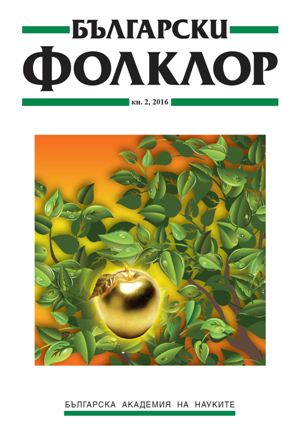Песни и граници във всекидневната култура на гагаузите от Източна Тракия в началото на ХХ век
Songs and Borders in the Living Culture of the Gagauz in Eastern Thrace in the Early Twentieth Century
Author(s): Galin Georgiev, Dinka AngelovaSubject(s): History, Anthropology, Language studies, Language and Literature Studies, Cultural history, Customs / Folklore, Music, Ethnohistory, Local History / Microhistory, Cultural Anthropology / Ethnology, Culture and social structure , Migration Studies, Inter-Ethnic Relations, Ethnic Minorities Studies
Published by: Институт за етнология и фолклористика с Етнографски музей при БАН
Keywords: Gagauzs; Eastern Thrace; folklore; identity; bilingualism
Summary/Abstract: The article is dedicated to the folklore singing of the Gagauzs in Eastern Thrace. The authors analyze primarily archival and published material from the early twentieth century war period and the following displacement of large groups of populations, which raises the question of their cultural traditions and specifics. The songs are used as a source allowing the outlining of a number of specific characteristics of the ethnic and cultural identity of the Gagauzs. Special attention is paid to bilingualism in some records and its ritual functions. The article is reminiscent of Adela Peeva’s film “ Whose is this song?”. Undoubtedly it will again show the development and the fate of the spiritual heritage from the Ottoman period bequeathed to the later national societies and countries in the Balkans, where the heritage (which was previously common) is “assigne” and began to be felt “our” and “native” or, in other cases, is strongly rejected. The aim of the article, however, is to show that this initial space was not always so common and open and that the relationships in it (respectively in the culture in general) depended on local developments, different situations and participants. At least in terms of knowledge about the various cultures and traditions on the Balkans, together with the question “Whose is this song?” goes the question “Whose song is the best?”. That is, except the origin of the songs, which in many cases is common, it is also important to understand it, to know how it is valorized and constantly acknowledged.
Journal: Български фолклор
- Issue Year: XLII/2016
- Issue No: 2
- Page Range: 179-202
- Page Count: 24
- Language: Bulgarian
- Content File-PDF

